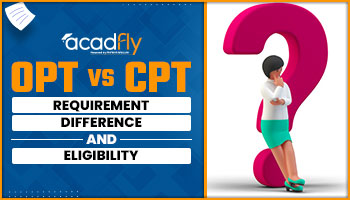

Denmark Scholarships for International Students
Denmark is a popular destination for international students due to its high-quality education system, innovative teaching methods, and vibrant cultural life. However, studying in Denmark can be expensive. Fortunately, there are various scholarships and grants available to help international students manage their tuition fees and living expenses. This article provides a comprehensive guide to Denmark scholarships for international students, including details on application processes, requirements, tuition fees, and study grants.
Overview of Denmark Scholarships for International Students
Denmark offers several scholarship opportunities for international students, which can significantly reduce the financial burden of studying abroad. These scholarships are provided by the Danish government, universities, and private organizations.
Table 1: Major Scholarship Programs in Denmark
|
Scholarship Name |
Eligibility |
Coverage |
|
Danish Government Scholarships |
Non-EU/EEA students |
Tuition fees and partial living expenses |
|
Erasmus+ |
EU/EEA students |
Tuition fees, travel, and living expenses |
|
Nordplus |
Nordic and Baltic students |
Study exchange and collaboration funding |
|
University-Specific Scholarships |
Various (check individual universities) |
Tuition fees, sometimes living expenses |
|
Private and Organizational Grants |
Various (depends on provider) |
Varies (tuition fees, living expenses, etc.) |
Danish Government Scholarships
The Danish government offers scholarships to highly qualified non-EU/EEA students through the Danish Ministry of Higher Education and Science. These scholarships are based on academic excellence and are provided for full-degree programs.
Erasmus+
Erasmus+ is a European Union program that supports education, training, youth, and sport in Europe. It offers funding for students from EU/EEA countries to study abroad, including Denmark. The program covers tuition fees, travel expenses, and provides a monthly stipend for living costs.
Nordplus
Nordplus is a scholarship program for students from Nordic and Baltic countries. It supports student exchanges and collaboration between universities in these regions, providing funding for study periods in Denmark.
University-Specific Scholarships
Many Danish universities offer their own scholarships to attract talented international students. These scholarships vary by institution and program, so students should check the specific requirements and application processes of their chosen university.
Private and Organizational Grants
Various private foundations and organizations provide grants to international students in Denmark. These grants can cover tuition fees, living expenses, or both, and eligibility criteria and application processes vary by provider.
Denmark Scholarship Application
The application process for scholarships in Denmark can vary depending on the type of scholarship and the institution offering it. However, there are some general steps that most applicants will need to follow.
Table 2: General Scholarship Application Steps
|
Step |
Description |
|
Research |
Identify available scholarships and their eligibility criteria |
|
Prepare Documents |
Gather necessary documents such as transcripts, recommendation letters, and CV |
|
Application Form |
Complete the scholarship application form |
|
Personal Statement/Essay |
Write a personal statement or essay if required |
|
Submit Application |
Submit the application before the deadline |
|
Follow Up |
Follow up on the application status and provide any additional information if requested |
Required Documents
While specific requirements can vary, most scholarship applications will require the following documents:
-
Completed application form
-
Academic transcripts
-
Proof of English language proficiency (e.g., TOEFL, IELTS)
-
Letters of recommendation
-
Personal statement or essay
-
CV or resume
-
Copy of passport
-
Proof of financial need (if applicable)
Denmark Scholarship Requirements
Each scholarship program in Denmark has its own set of requirements. However, there are some common criteria that applicants typically need to meet.
Table 3: Common Scholarship Requirements
|
Requirement |
Description |
|
Academic Excellence |
High academic performance and grades |
|
English Proficiency |
Proof of proficiency in English (e.g., TOEFL, IELTS) |
|
Admission to a Danish University |
Must be accepted into a degree program at a Danish university |
|
Nationality Restrictions |
Some scholarships are only available to non-EU/EEA students |
|
Specific Field of Study |
Some scholarships may be limited to certain fields of study |
|
Financial Need |
Some scholarships may require proof of financial need |
Denmark Tuition Fees
Tuition fees in Denmark can vary depending on the university and the program of study. Generally, tuition fees for non-EU/EEA students are higher than for EU/EEA students.
Table 4: Average Tuition Fees in Denmark
|
Program Level |
Average Annual Tuition Fees (DKK) |
|
Bachelor's Degree |
45,000 - 120,000 |
|
Master's Degree |
50,000 - 150,000 |
|
PhD Programs |
Often covered by scholarships or stipends |
Tuition Fees for EU/EEA Students
EU/EEA students generally do not pay tuition fees for higher education programs in Denmark. However, they may need to pay a small semester fee for student services and activities.
Tuition Fees for Non-EU/EEA Students
Non-EU/EEA students are required to pay tuition fees for higher education programs in Denmark. The fees vary by university and program, with business, engineering, and medical programs typically being more expensive.
Study in Denmark for Free
Studying in Denmark for free is possible for EU/EEA students, as they are not required to pay tuition fees. Additionally, highly qualified non-EU/EEA students can study for free if they receive a fully-funded scholarship that covers their tuition fees and living expenses.
Scholarships for Free Study
Several scholarship programs, such as the Danish Government Scholarships and Erasmus+, can provide full funding for international students, effectively allowing them to study in Denmark for free.
Denmark Study Grants
In addition to scholarships, international students in Denmark can apply for study grants to help cover their living expenses. These grants are often provided by the Danish government, universities, or private organizations.
Table 5: Major Study Grants in Denmark
|
Grant Name |
Eligibility |
Coverage |
|
Danish State Educational Support (SU) |
EU/EEA students |
Monthly stipend for living expenses |
|
Private Foundations |
Various (depends on provider) |
Varies (living expenses, tuition fees, etc.) |
|
University-Specific Grants |
Various (check individual universities) |
Living expenses, sometimes tuition fees |
Danish State Educational Support (SU)
EU/EEA students who meet certain criteria can apply for the Danish State Educational Support (SU), which provides a monthly stipend to help cover living expenses. To be eligible, students must be enrolled in a full-degree program and meet specific residency and work requirements.
Private Foundations
Various private foundations offer study grants to international students in Denmark. These grants can help cover living expenses, tuition fees, or both. Eligibility criteria and application processes vary by foundation.
University-Specific Grants
Many Danish universities offer their own study grants to support international students. These grants can help cover living expenses and sometimes tuition fees. Students should check the specific requirements and application processes of their chosen university.
Conclusion
Denmark offers a range of scholarships and grants to support international students, making it an attractive destination for those seeking high-quality education. By understanding the different types of scholarships available, the application process, and the requirements, students can find opportunities to study in Denmark without the financial burden. Whether through Danish government scholarships, university-specific scholarships, or private grants, international students have numerous options to fund their education and enjoy a rich academic and cultural experience in Denmark.
Frequently Asked Questions
1. What types of scholarships are available for international students in Denmark?
2. How can I apply for scholarships in Denmark?
3. What are the common requirements for obtaining a scholarship in Denmark?
4. Are there any scholarships that cover the full cost of studying in Denmark?
5. What is the cost of tuition for international students in Denmark?









